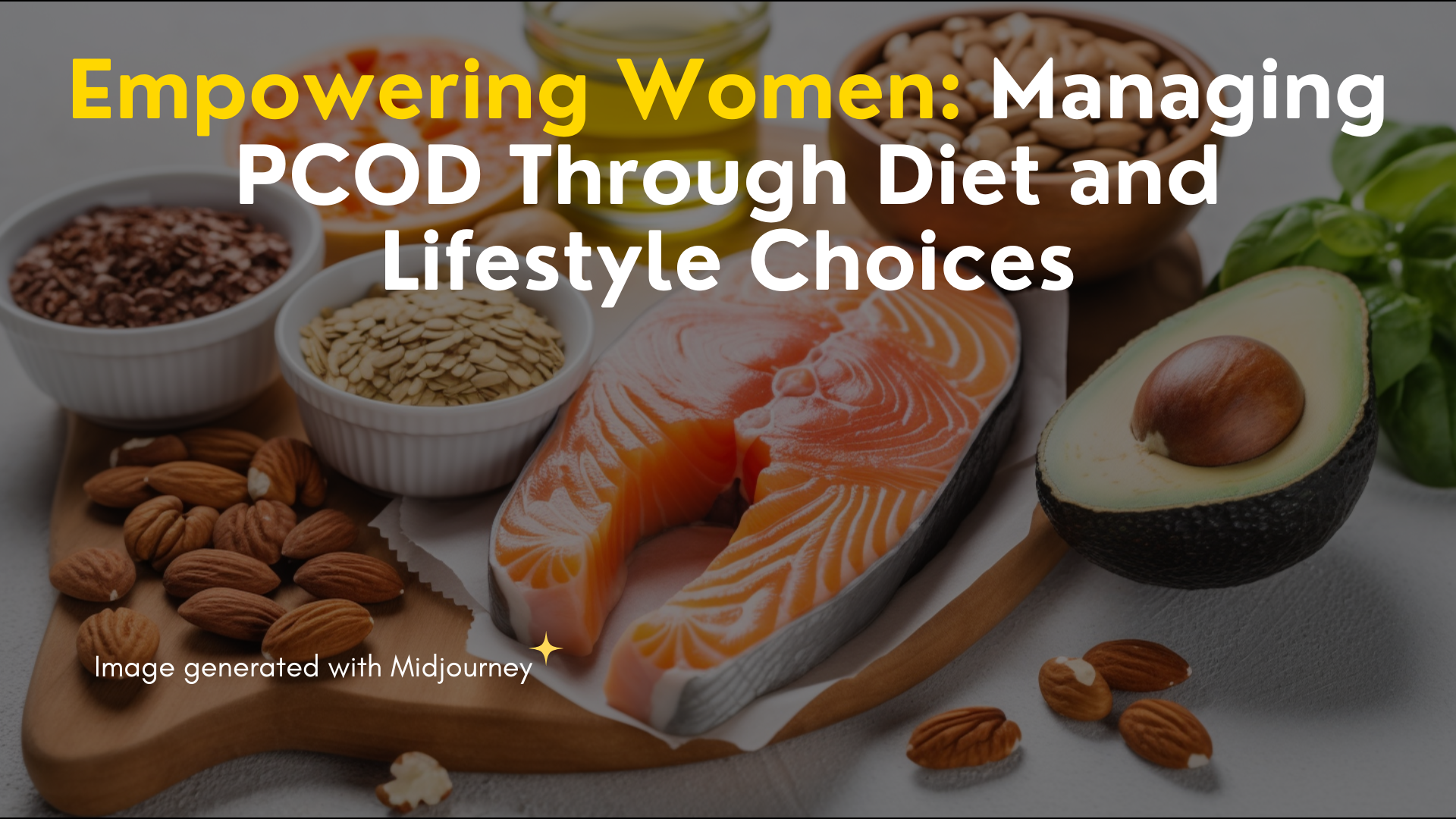Published Date January 24, 2003
Managing PCOD through Diet
By Team Ariso
4 min read
Last update date: January 24, 2003

Living with Polycystic Ovary Syndrome (PCOS) can be challenging, but making mindful choices in your diet can significantly manage its symptoms. In this blog post, we will delve into the essential aspects of PCOD, explore the foods that can support your health, and highlight the ones to avoid. By understanding the connection between your diet and PCOD, you can take proactive steps towards improving your well-being.
What is PCOD?
PCOD, or Polycystic Ovary Syndrome, is a hormonal disorder that affects women of reproductive age. It is characterized by imbalances in female hormones, insulin resistance, and the formation of tiny cysts on the ovaries. The exact cause of PCOD is still unclear, although factors such as genetics, insulin resistance, and inflammation may play a role in its development.
This condition leads to various symptoms, including infertility, irregular menstruation, hair loss, and abnormal weight gain. The ovaries in women with PCOD produce immature or partially mature eggs that develop into cysts, causing the ovaries to enlarge. Additionally, excessive androgen production contributes to the hormonal imbalance associated with PCOD.
Understanding the underlying mechanisms of PCOD is crucial for managing its symptoms and improving overall well-being. By addressing hormonal imbalances and insulin resistance through lifestyle modifications, including dietary changes, women with PCOD can better manage their condition and alleviate the associated symptoms. [1]
Foods to Consume in PCOD
Proper nutrition is crucial in managing PCOD symptoms effectively. Three good diets for PCOD management include:
- Low Glycemic Index Diet: A low glycemic index (GI) diet focuses on consuming foods with a lower impact on blood sugar levels. These foods are digested more slowly, preventing rapid and dramatic spikes in insulin. Opt for whole grains, legumes, nuts, seeds, fruits, non-starchy vegetables, and other unprocessed, low-carbohydrate foods as part of a low GI diet.
- Anti-Inflammatory Foods: Incorporating anti-inflammatory foods into your diet can help alleviate PCOD symptoms. Berries, fatty fish like salmon, leafy greens, and extra virgin olive oil are anti-inflammatory foods that may positively impact reducing inflammation associated with PCOD.
- Balanced and Nutrient-Rich Diet: When managing PCOD, it is crucial to prioritize a balanced and nutrient-rich diet. Consider incorporating the following food items into your daily meals:
- Whole Grains: Choose whole grain options such as brown rice, quinoa, and whole wheat bread to regulate blood sugar levels effectively.
- Lean Proteins: Include lean protein sources like chicken, fish, tofu, and legumes in your diet to promote satiety and stabilize insulin levels.
- Fruits and Vegetables: Enjoy a wide variety of colourful fruits and vegetables to benefit from their antioxidant and fibre content. Berries, leafy greens, and cruciferous vegetables such as broccoli and cauliflower are particularly beneficial for women with PCOD.
Healthy Fats: Consume foods rich in omega-3 fatty acids, such as fatty fish (salmon, mackerel), nuts, and seeds. These foods can help reduce inflammation and support hormone balance in individuals with PCOD. [2]
Food Items to be Avoided in PCOD
When dealing with PCOD, it is important to be mindful of certain food items that should be limited or avoided to manage symptoms effectively:
- Refined Carbohydrates: Minimize or eliminate processed and refined carbohydrates such as white bread, sugary cereals, and pastries. These foods can cause blood sugar spikes and worsen insulin resistance.
- Sugary Foods and Beverages: Cut back on sugary treats, sodas, and sweetened beverages. Excessive sugar intake can contribute to weight gain and hormonal imbalances, which can worsen PCOD symptoms.
- Saturated Fats: Reduce consumption of saturated fats found in fatty meats, fried foods, and full-fat dairy products. These fats may contribute to inflammation and insulin resistance, exacerbating PCOD symptoms.
4. Caffeine and Alcohol: Limit your intake of caffeinated beverages and alcohol. These substances can disrupt hormone balance and affect insulin sensitivity, potentially aggravating PCOD symptoms
Conclusion
While PCOD can be challenging to manage, adopting a balanced diet that focuses on nutrient-dense foods and avoiding triggers can significantly improve your symptoms and overall well-being. Remember, consultation with a healthcare professional and personalized dietary advice is crucial in managing PCOD effectively. Empower yourself through informed choices, and embark on a journey toward a healthier, happier life with PCOD.
Choose Healthy With Us.
Know the real truth about your food. Stay informed and healthy, for free.

Download the App Now
Certified nutritionists trust our food recommendations. Safe to say, so can you :)











